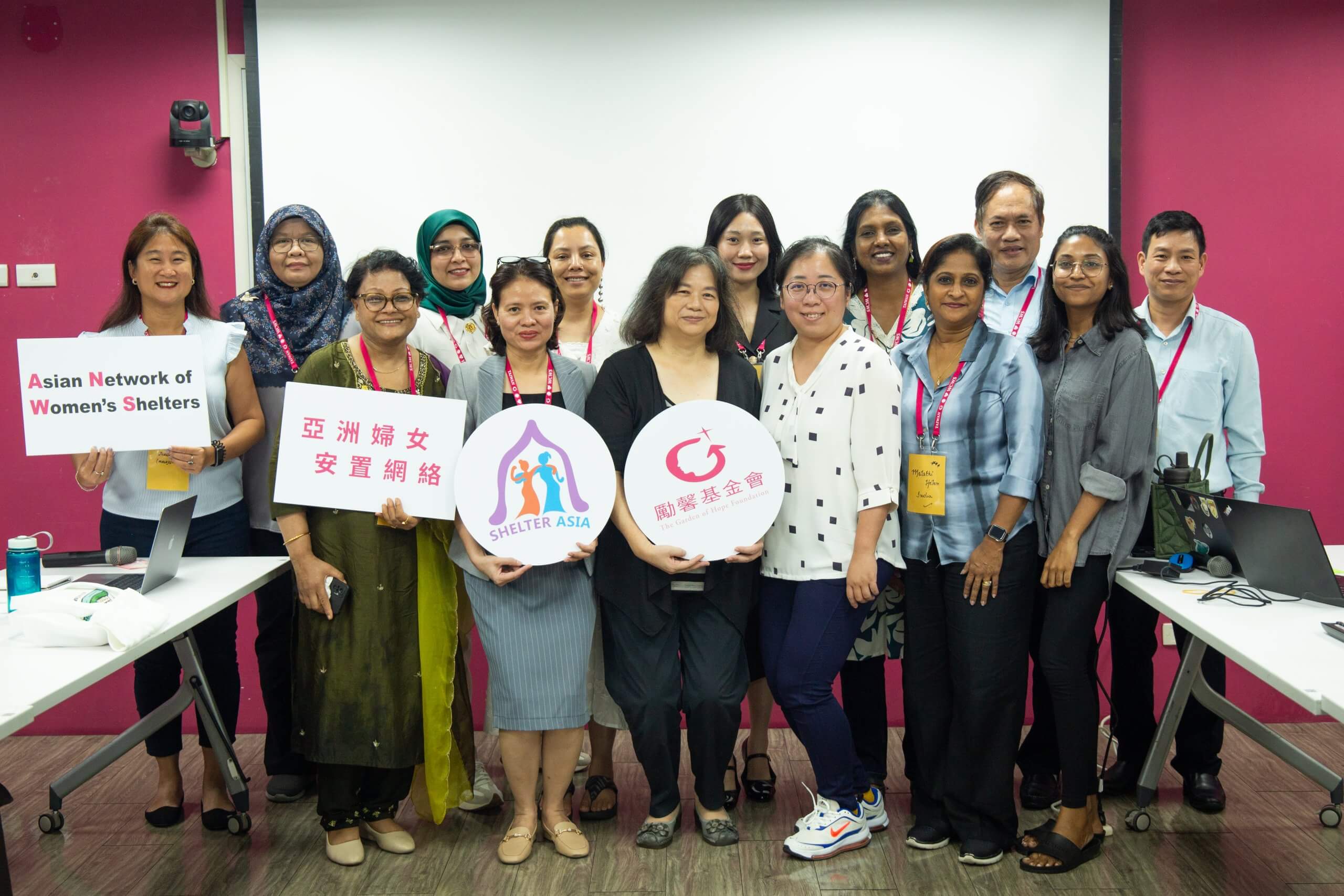From August 12 to 15, the Garden of Hope Foundation invited leaders of domestic violence NGOs and government officials from Vietnam, Malaysia, India, and Nepal to Taiwan to learn from Taiwan’s domestic violence prevention and treatment framework, hoping to work together to promote gender equality in Asia.
From Tragedy to Triumph: How a Husband’s Murder Led to a Pioneering Domestic Violence Law and the GOH Foundation’s Support for Victims
“Taiwan’s domestic violence law was sparked by a husband-killing case.”
The first day of the study visit began with an introduction to the history and overall structure of domestic violence prevention and treatment in Taiwan. Starting with the case of Ms. Ruwen Deng, whose husband’s murder shocked Taiwanese society at the time, Ms. Yueh-Hao Wang, CEO of the GOH Foundation, explained the progress of Taiwan’s domestic violence services over the past 30 years. Over the years, with the promotion of women’s rights organizations such as the GOH Foundation, domestic violence is no longer seen as a family problem but as an issue shared by the whole society. In recent years, emerging issues of violence, such as domestic violence in same-sex couples and digital sexual violence, have also been brought under the protection of domestic violence laws through the efforts of women’s rights organizations.
Next, Ms. Mengxin Yeh, Director of the GOH Miaoli Branch, introduced the GOH’s efforts in domestic violence services to the guests.
“Helping victims is not just about solving the problem of violence, but also about helping them become whole again, to find themselves, and to be there for themselves,” Ms. Yeh shared with the guests.
Finally, Mr. Huang Jiekai, Director of World Vision Taiwan introduced Taiwan’s 113 Hotline to the guests. He talked about how 113 has become the most familiar helpline in Taiwan and how important it is in preventing and treating domestic violence in Taiwan.
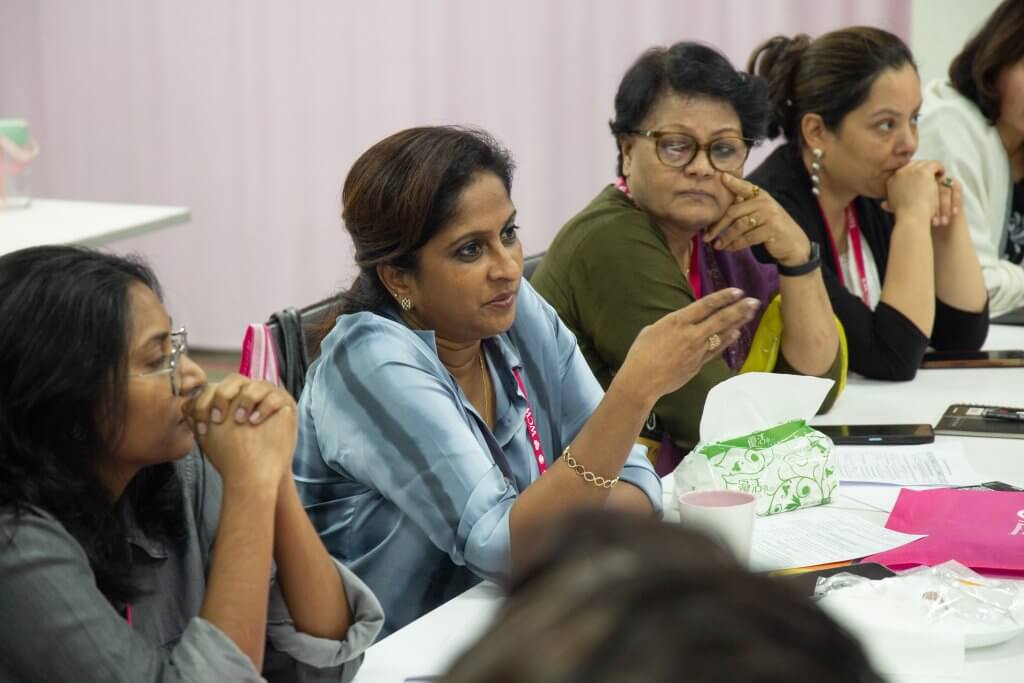
“What are some of the difficulties you are currently experiencing in helping your clients become self-sufficient?”
Sajitha, a representative of the International Crime Prevention and Victim Care Foundation (PCVC) from India, asked this question during the discussion session. She shared her experience of working with victims of domestic violence in India and mentioned that she found it challenging to help them truly regain their independence.
“In Taiwan, it is also very difficult to get our clients to stand on their own, but we are there for them, showing them what we can do to help. However, some things they still have to do on their own,” Ms. Meng replied.
From Supporting Victims to Addressing Perpetrators: Taiwan’s Comprehensive Domestic Violence Services
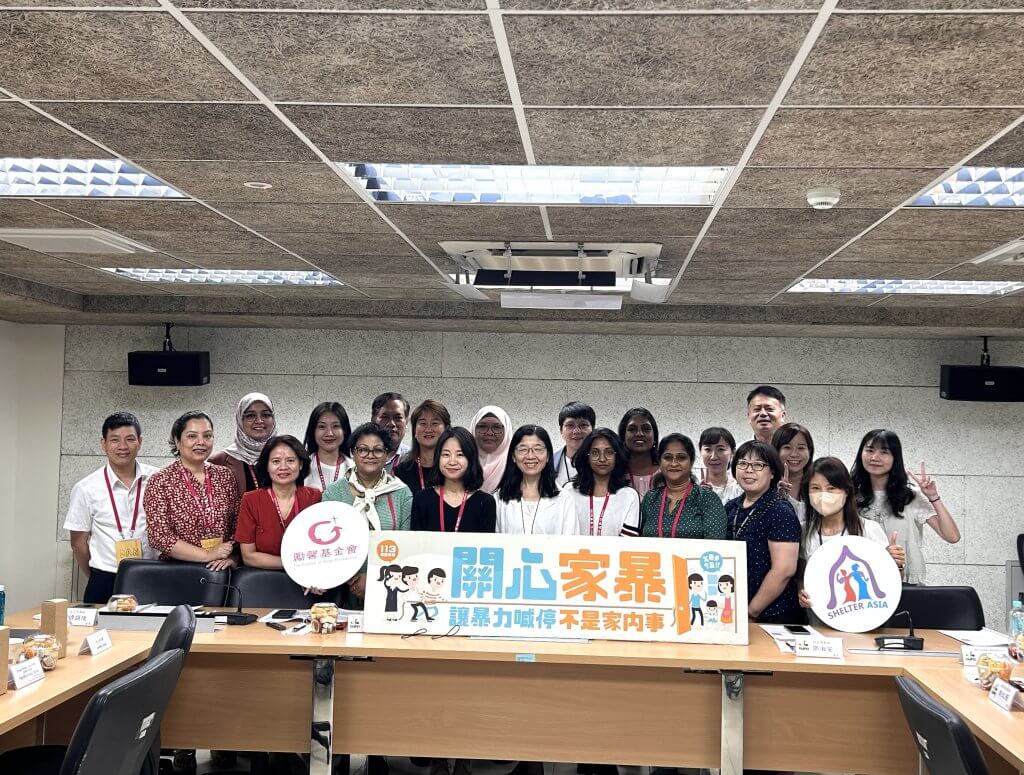
The Taipei Domestic Violence and Sexual Assault Prevention Center (TDVSAPC) is the frontline unit that handles domestic violence cases in Taipei City. The center’s social workers took the guests on a tour of their workplace, including the crisis response room and the children’s play therapy room, and shared both the joyful and challenging moments of their work.
The social worker supervisors of the center then gave a presentation about child and adult protection services in Taiwan. They introduced the domestic violence law, enacted in 1998, which has become increasingly comprehensive. For example, the scope of protection has widened, covering children who witness violence, adolescents, non-cohabiting intimate partners, and family members in same-sex marriages. In addition, the TDVSAPC introduced the current situation of domestic violence in Taiwan. In adult protection cases, intimate partner violence remains the most common, but there has been a noticeable increase in elder abuse cases, often caused by caregiver stress. This highlights the importance of expanding long-term care resources in Taiwan.
The center emphasized that the prevention and treatment of domestic violence is no longer just a family issue but requires collaboration among various sectors, including the police, social services, justice, education, healthcare, and community resources. This teamwork is vital for effectively preventing and addressing domestic violence and ensuring survivors receive the support they need to recover.
In addition to visiting TDVSAPC, which focuses on survivor services, the guests also visited the Shu-Li Foundation, a pioneer in providing perpetrator intervention programs in Taiwan.
Ms. Li Pei-Hua, a social worker supervisor at Shu-Li Foundation, spoke about their pre-court education and counseling programs, which aim to offer perpetrators emotional support and guidance.
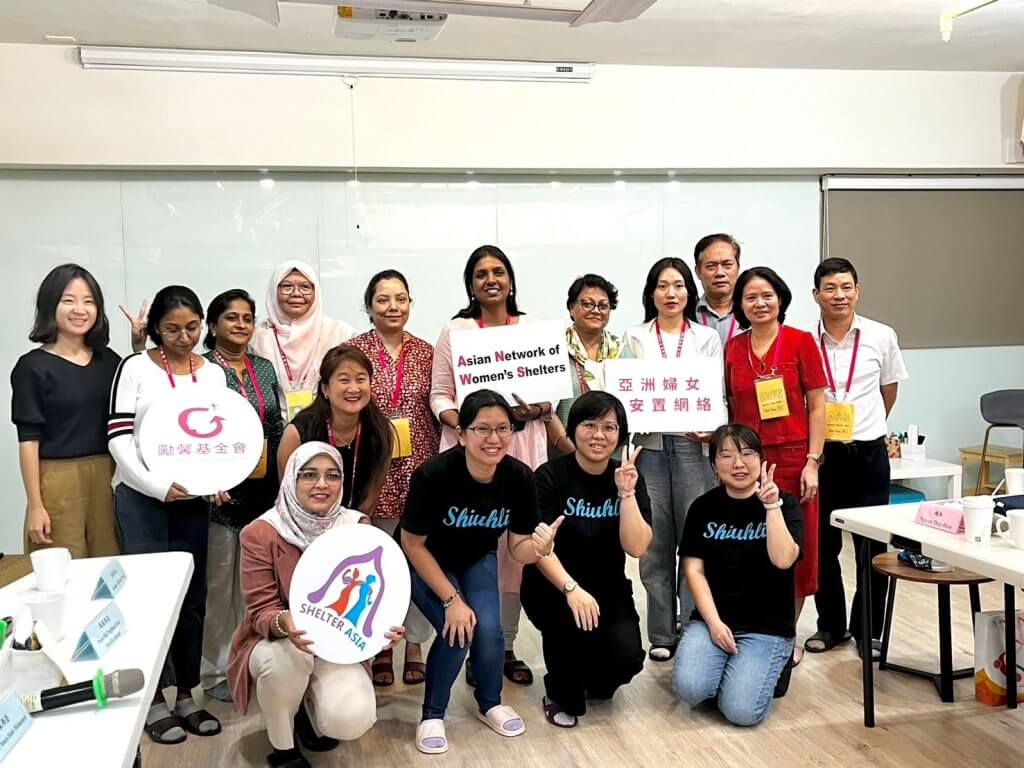
“Our society has stigmatized and labeled ‘violence,’ so our job is to accompany our clients as they learn to understand and accept themselves,” Ms. Li shared with the audience.
At the end of the meeting, the guests shared the current status of domestic violence prevention and treatment in their own countries. Hien, a representative from the Vietnam Center for Women and Development (CWD), discussed Vietnam’s situation. Typically, unless the victim reports the case to the police and the police confirm that domestic violence has occurred, the case is not pursued. In addition, there are no specific treatment programs for perpetrators in Vietnam. “Although perpetrators sometimes come to counseling centers, there is no law that compels them to do so,” Hien said.
The First Line of Defense: Domestic Violence Prevention and Service Accessibility Through the Eyes of Law Enforcement
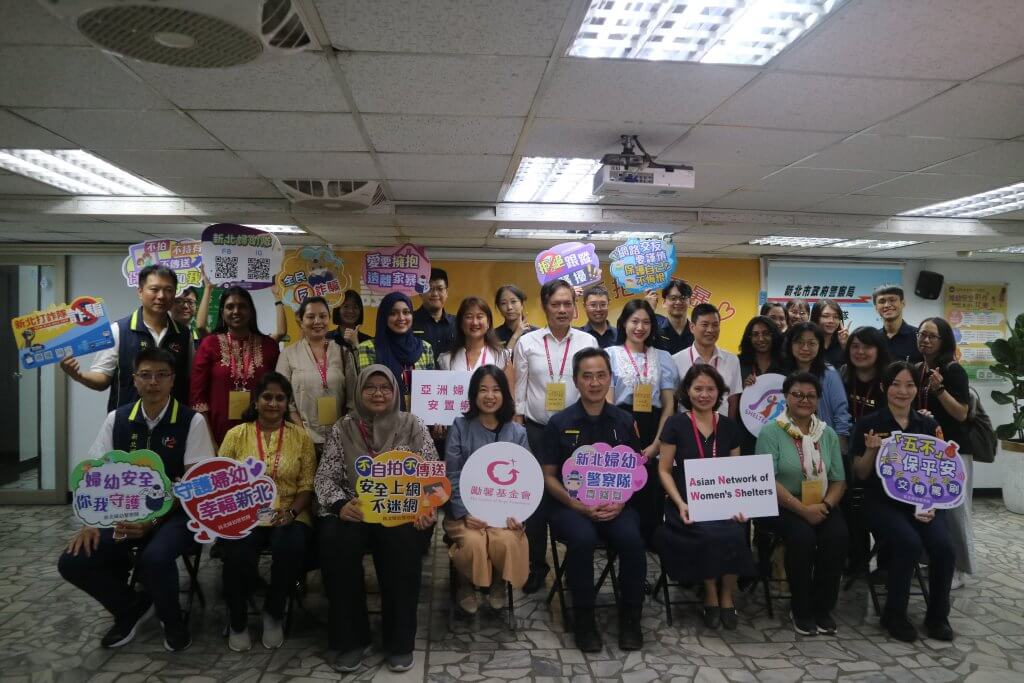
The Women and Children’s Protection Division of the New Taipei City Police Department is the first to respond to domestic violence cases and is a key partner in Taiwan’s domestic violence prevention network. The Head of the Women and Children’s Protection Division, Mr. Lau Ka Tsz, warmly welcomed the guests, and officers explained the unit’s role in handling domestic violence cases.
Police officers are responsible for preventing perpetrators from committing further offenses and ensuring the protection of women and children. Officers can accompany victims for injury assessments or help them return home to collect personal belongings, ensuring they are no longer under threat. The protection of women and children depends heavily on cooperation between different agencies. When units collaborate effectively, domestic violence survivors can be better protected.
The New Taipei City Women’s and Children’s Division also introduced the standard operating procedures for handling cases and showcased various facilities. The visit helped guests gain a deeper understanding of the protection processes in New Taipei City, and they were impressed with the focus on “human rights protection” and the “improvement of victim protection measures.”
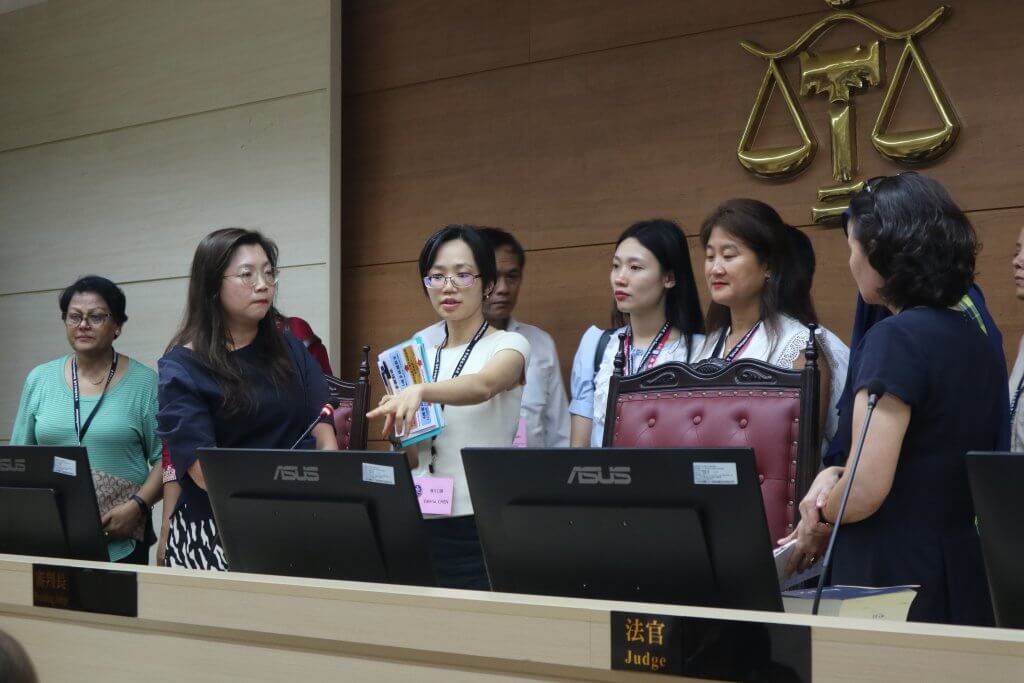
In addition to the Women and Children’s Protection Division, legal services are an essential component of domestic violence prevention. Lai Wenzhen, Director of the GOH Taoyuan Branch Office, led guests on a tour of the Taoyuan District Court. The President of the Family Court, Ms. Su Zhaorong, introduced the court’s facilities, including a cozy children’s counseling room, the Cloud Cottage, and the Family Court. The court demonstrated mechanisms that ensure domestic violence victims are separated from their abusers during hearings, allowing them to present their cases in a safe and secure environment. Social workers also explained how they collaborate with the court to complete Taiwan’s domestic violence service system.
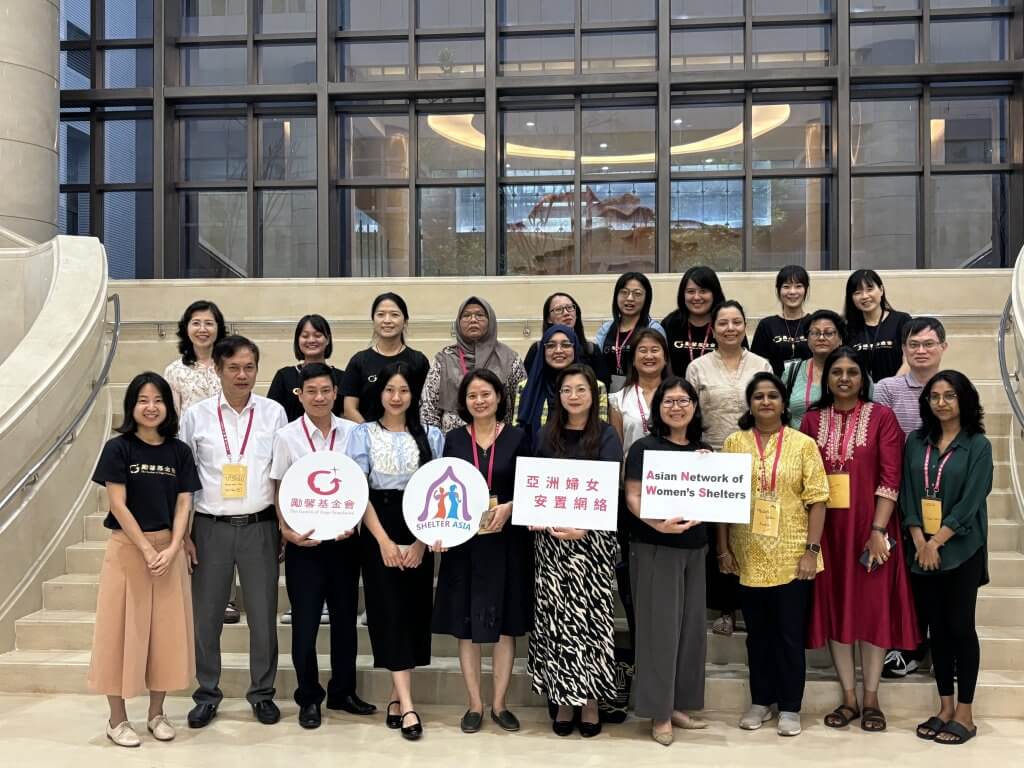
Empowering Survivors to Achieve Self-Reliance: GOH Linkou Service Center’s Innovative Support Services
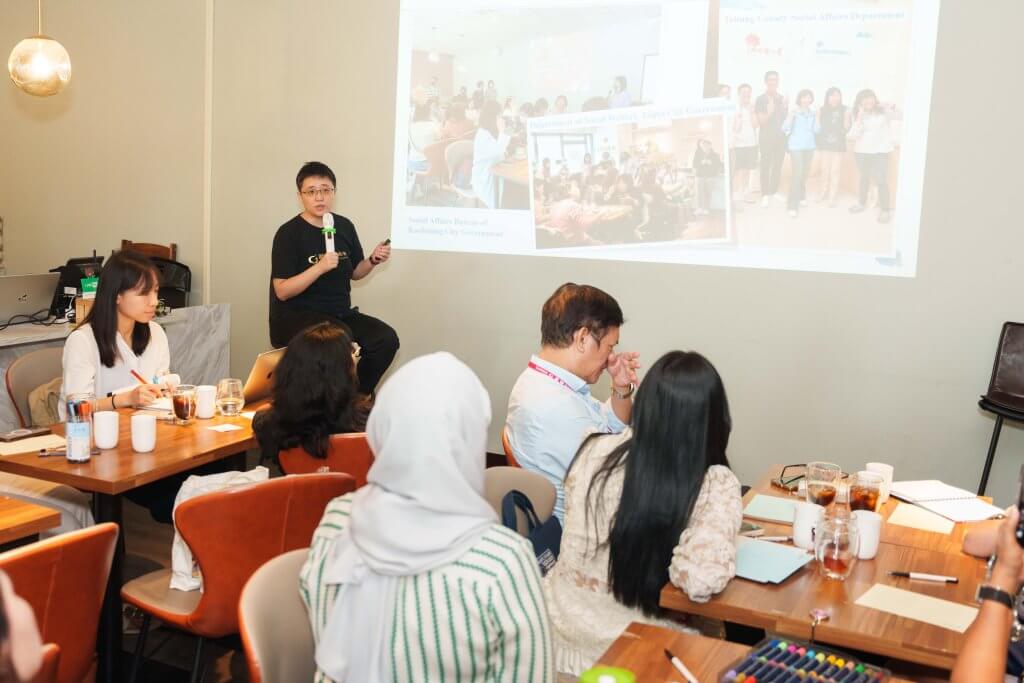
On the last day of the study visit, the guests toured the GOH Linkou Service Center, Taiwan’s first social housing community designed for women and children who are survivors of domestic violence.
Lee Yuhua, Deputy Director of the GOH Linkou Service Center, and social workers guided the guests through the facility, showing them the women’s living spaces, the Sunflower Canteen for children, and the SMART Room (Sensory Motor Arousal Regulation Treatment).
“We observed that while many women had escaped violence, they had fallen into poverty. This led us to think about how we could help them truly regain independence,” Director Lee explained.
GOH Linkou Service Center has developed a unique model combining housing, employment, and childcare support to help survivors rebuild their lives.
After learning about the management of the center, Joanne, a representative from the Women’s Aid Organization (Malaysia), asked, “The services here are remarkable, but given the limited capacity, where do the other victims go?”
Director Li responded by explaining the broader domestic violence services in Taiwan. After that, a social worker added, “Domestic violence stems from social injustice and gender inequality. When you see the new and well-equipped facilities here, you might think they’re a luxury. But if you look closely, the cost of replacing a child victimized by violence is much higher. We’re showing how people should live, with dignity for all.”
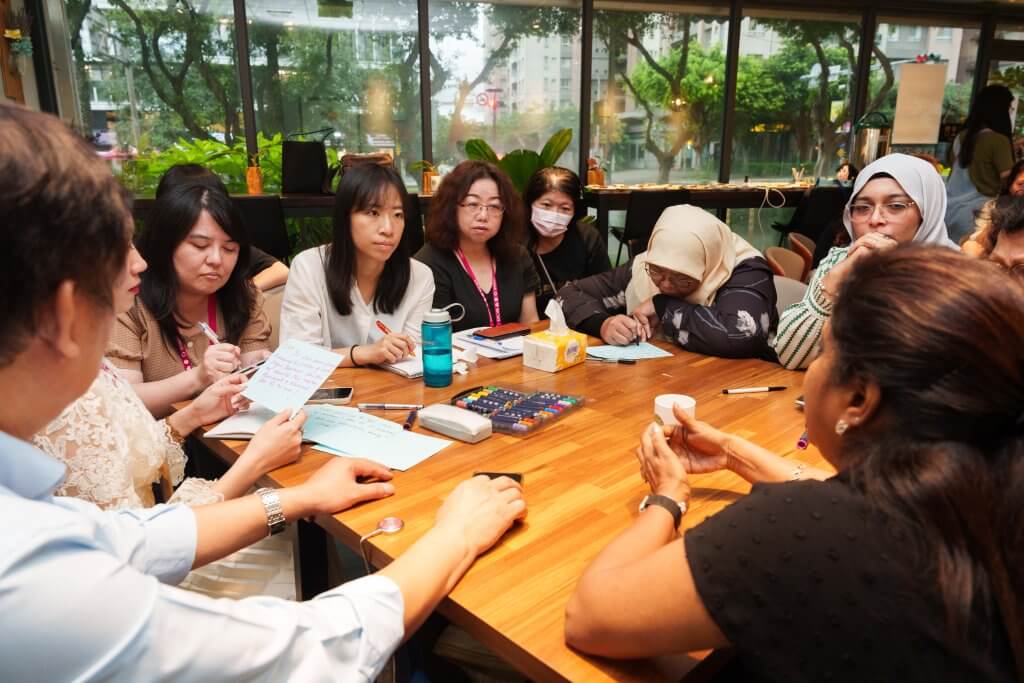
countries
Taiwan, with one of the highest Gender Equality Index scores in Asia, offers a complete chain of domestic violence services through the collaboration of the government and civil society, driven by passionate organizations like GOH. This model serves as an inspiration for other countries to improve their own systems. The guests expressed their admiration for Taiwan’s approach, hoping to take their learnings home and bring more people to observe Taiwan’s practices.
In addition to working with survivors of domestic and sexual violence in Taiwan, GOH aims to share Taiwan’s experiences with other key women’s rights organizations and governmental agencies across Asia. Their vision is to spread gender equality worldwide, creating societies free from gender discrimination and violence.

